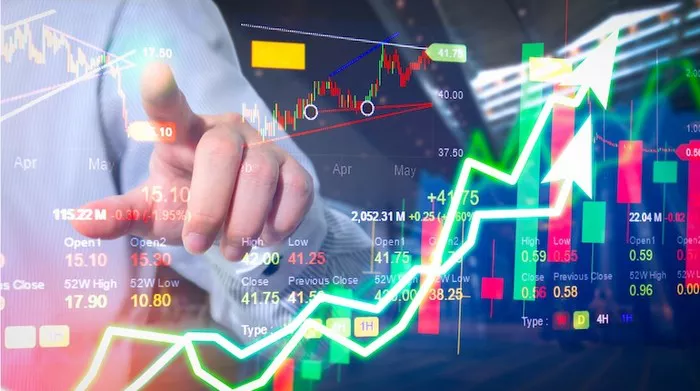Trading in financial markets offers various avenues for investors and traders to speculate on price movements and hedge against risks. Two prominent trading instruments, futures and forex (foreign exchange), each serve distinct purposes but often cause confusion among traders regarding their applicability and relationship. In this comprehensive guide, we explore the dynamics of futures trading in the context of forex markets, outlining how futures contracts work, their advantages, and considerations for traders interested in leveraging both futures and forex for their investment strategies.
Introduction to Futures Trading
Futures contracts are standardized agreements to buy or sell a specific asset at a predetermined price on a future date. They are actively traded on organized exchanges, facilitating price discovery and providing a platform for hedging and speculation.
How Futures Contracts Work
Contract Specifications: Futures contracts specify the asset, quantity, quality, and delivery date.
Margin Requirements: Traders post a margin (initial deposit) to initiate futures positions.
Settlement: Futures contracts can be settled by physical delivery or cash settlement.
Futures markets cover a wide range of assets, including commodities (like oil and gold), stock indices (such as S&P 500), and currencies (forex).
Understanding Forex Trading
Forex, or foreign exchange trading, involves buying and selling currencies in the global marketplace. It is the largest and most liquid financial market globally, operating 24 hours a day across major financial centers.
Key Features of Forex Trading
Currency Pairs: Traders speculate on the exchange rate between two currencies (e.g., EUR/USD).
Leverage: Forex trading typically offers high leverage, amplifying potential gains and losses.
Market Participants: Includes central banks, corporations, institutional investors, speculators, and retail traders.
Forex trading provides opportunities for profit through currency price fluctuations and serves essential functions in international trade and finance.
Can You Trade Futures on Forex?
The distinction between futures and forex trading often leads to the question: Can futures contracts be traded on forex pairs? The answer lies in understanding the structure and purpose of futures contracts:
Futures Contracts on Currency Pairs
Futures contracts on forex pairs exist and are traded on certain exchanges. These contracts offer advantages similar to other futures markets:
Standardization: Futures contracts on forex are standardized, specifying the currency pair, contract size, and maturity date.
Liquidity: Exchanges provide liquidity, enabling traders to enter and exit positions efficiently.
Risk Management: Futures on forex allow hedging against currency risk for businesses and investors exposed to currency fluctuations.
See Also: Can I Use thinkorswim to Trade Futures?
Advantages of Trading Futures on Forex
1. Risk Management: Futures contracts allow businesses and investors to hedge against currency risk, reducing exposure to adverse exchange rate movements.
2. Speculation: Traders can speculate on forex price movements using futures contracts, leveraging price volatility for potential profit.
3. Leverage: Futures trading offers leverage, amplifying trading capital and potential returns (as well as risks).
4. Regulated Environment: Trading on organized exchanges ensures transparency, price discovery, and regulatory oversight.
Considerations for Traders
1. Market Hours and Liquidity: Futures on forex have specific trading hours and liquidity profiles, differing from over-the-counter (OTC) forex markets.
2. Margin Requirements: Futures contracts have margin requirements that dictate initial deposits and maintenance margins, influencing trading strategies.
3. Contract Size and Cost: Understanding contract specifications, including size and tick value, helps traders manage risk and allocate capital effectively.
4. Rolling Contracts: Futures contracts have expiration dates, requiring traders to roll positions to subsequent contracts to maintain exposure.
Practical Strategies for Futures Trading on Forex
Trading futures on forex pairs involves strategic considerations to maximize potential benefits while managing risks effectively:
1. Technical and Fundamental Analysis: Use technical indicators and fundamental analysis to identify trading opportunities and timing.
2. Risk Management: Implement stop-loss orders and position sizing strategies to mitigate potential losses.
3. Leverage Effectively: Manage leverage responsibly to optimize capital utilization and avoid overexposure.
4. Stay Informed: Stay updated on economic indicators, geopolitical events, and central bank policies influencing currency markets.
Conclusion
Futures trading on forex pairs provides an additional avenue for traders and investors to manage risk, speculate on currency price movements, and diversify their portfolios. By understanding the mechanics of futures contracts, leveraging their advantages, and implementing sound trading strategies, traders can effectively navigate the dynamic forex markets. Whether hedging currency risk or seeking profit through speculation, futures on forex offer a regulated, transparent environment with ample opportunities for informed traders. As with any trading activity, diligence, risk management, and continuous learning are crucial for success in futures trading on forex.


